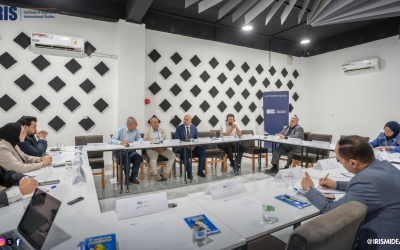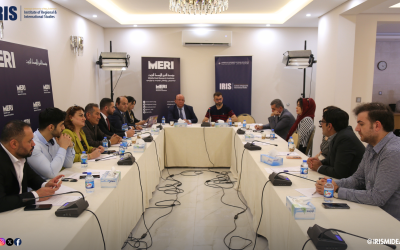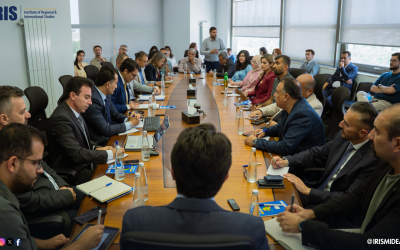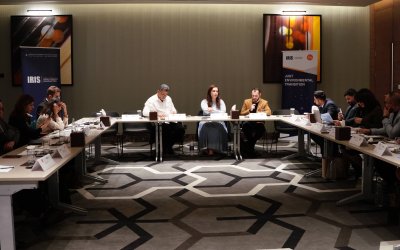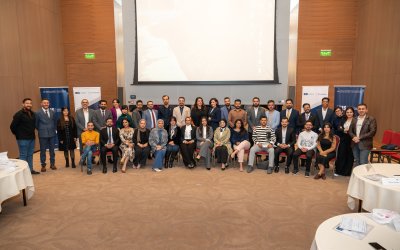IRIS hosted a panel discussion entitled “Can Iraq’s Economy Adapt to Climate Change?” The event took place at the American University of Iraq, Sulaimani (AUIS) on Sunday, September 24, 2023 and included attendees from within and outside AUIS, including university students, faculty, researchers, journalists, and policymakers.
Recognizing that climate change is a major threat to Iraq's economy, the panel sought to bring together policymakers from the Government of Iraq and the Kurdistan Regional Government alongside researchers to discuss these challenges and potential solutions. The panel discussed the effects of climate change, challenges facing environmental businesses, and the governmental responses.
The panel discussion featured Ali Abdulhussein Khadhim, Director of Climate Mitigation and Carbon Markets in the Ministry of Environment of Iraq, Halkawat Dukani, Director General of Horticulture, Forests and Pastures in the KRG Ministry of Agriculture and Water Resources, Hayder Al-Shakeri, Research Fellow at Chatham House, and Maha Yassin, Climate Fellow at IRIS, and was moderated by Mac Skelton, Director of IRIS.
Both officials discussed methods that help farmers adapt to climate change. They mentioned initiatives about training farmers to modernize irrigation methods and pioneering projects that utilize renewable energy to help with farming electricity needs. Khadhim discussed the perspective of the Ministry of Environment and quoted:
There are plans and projects to develop agriculture in the poorest areas in Iraq by covering irrigation canals with solar panels and utilizing solar energy to produce electricity. The youth and Civil Society Organizations can play a role in spreading this concept away from governmental routine.
Yassin explained the country’s need for more action to mitigate and adapt to climate change and the necessity for more support, especially technical, from the developed countries. On the other hand, Al-Shakeri spoke about the obstacles that face environmental businesses in Iraq including convoluted bureaucratic procedures and the encroachment of politics. Al-Shakeri elaborated on this point and said:
If you want to start a business in the environmental sector navigating the relevant ministries will have its own bureaucratic procedures and complexities, in addition to political interference. The process is not very clear to entrepreneurs and investors who want to develop the environmental sector and green energy businesses. So, it's important to make procedures as transparent as possible.
Access the full recording of the event below:
IRIS researchers are dedicated to addressing the complex challenges prevalent in Iraq and the wider Middle East region through careful policy research focusing on issues linked to the environment, economy, and governance. This event is part of the Iraq Economic Review (IER) project that comes in partnership with the National Endowment for Democracy (NED) to promote sound economic policy, knowledge, and transparency in Iraq. IER aims to shift the national policy conversation towards a long-term sustainable economic vision and empower local civil society actors with the necessary knowledge and tools to press for changes in the governmental approach to the economy.
You can access the photos of the event here.

